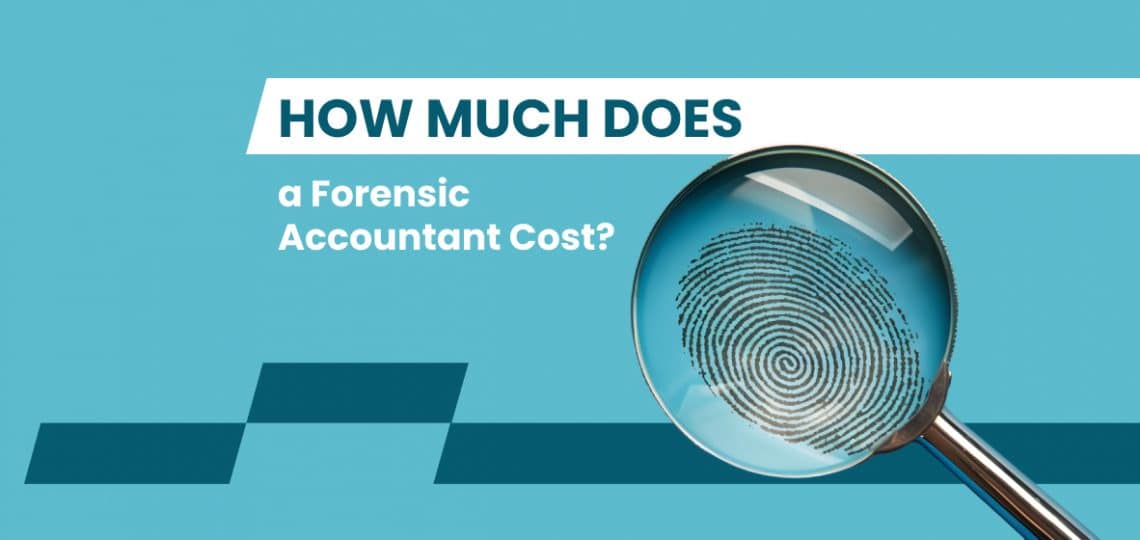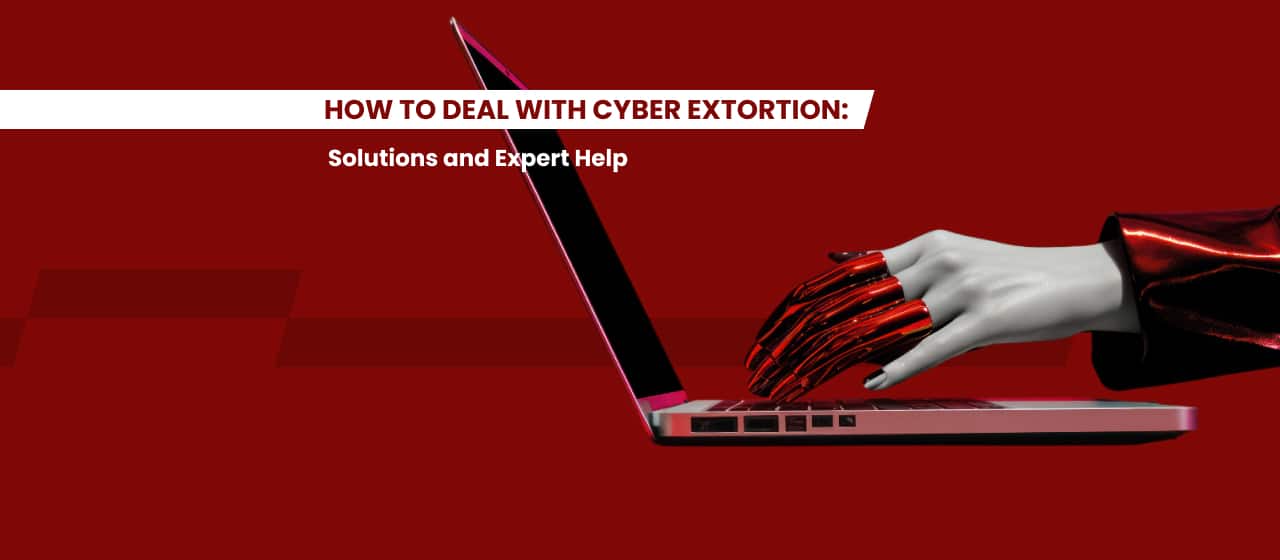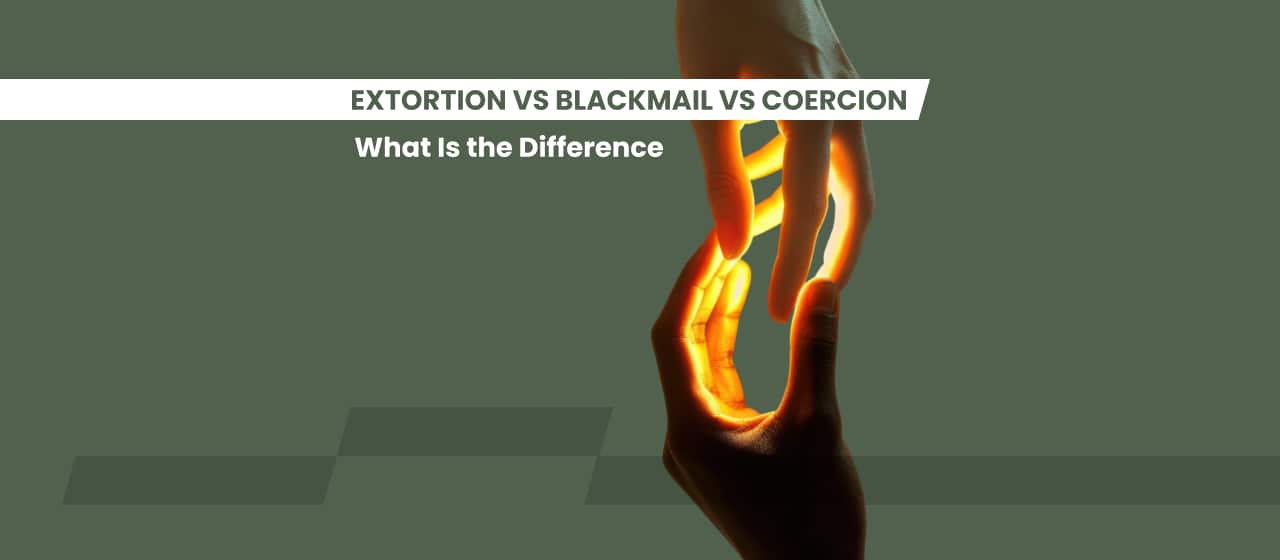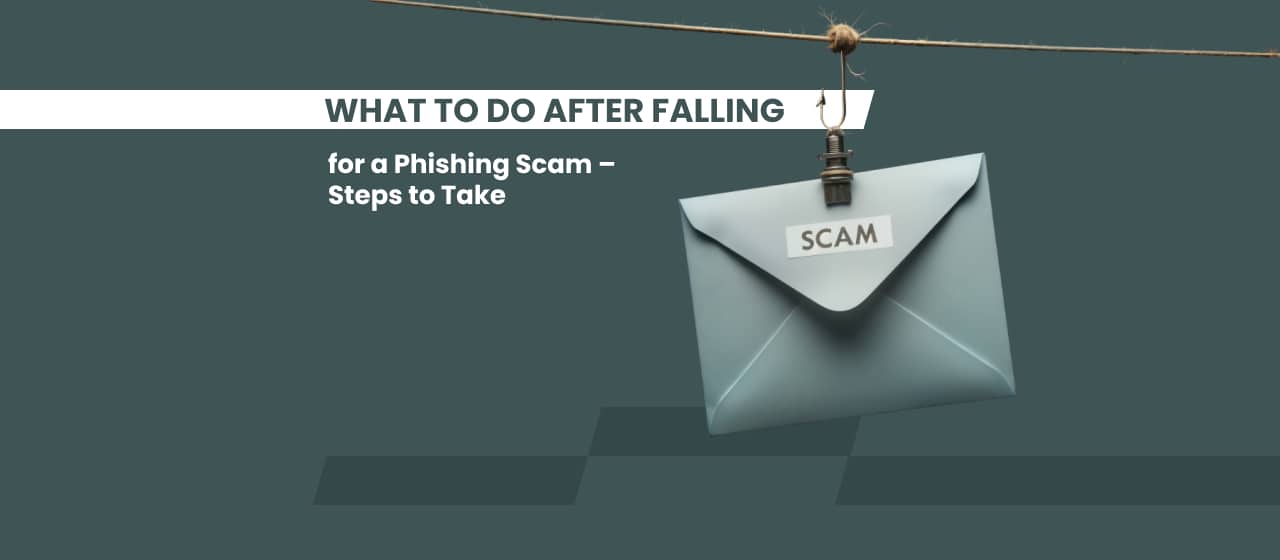Forensic accounting consultants are trained to look at financial records with a critical eye and to identify any irregularities that might indicate criminal activity. They also possess the skills and knowledge necessary to testify in court if their findings are used as evidence in a criminal trial. Because of the specialized nature of their work, forensic accounting experts usually charge higher rates than traditional accountants. So, how much does a forensic accountant cost? Read on to learn more about forensic accounting rates.
How Much Does a Forensic Accountant Cost?
The average hourly rate for a forensic accountant can range from $300 to $500 per hour and can vary depending on what’s being looked into. For example, a straightforward search for missing funds within an organization will likely cost less than investigating fraud or money laundering cases that span multiple countries. Additionally, if more resources are needed to complete the investigation, costs may increase accordingly.
Another factor that affects the cost of hiring a forensic accountant is their level of experience. When selecting a certified forensic accountant, you will want to make sure you find one with extensive experience in your particular area of need. This way, you get someone who knows what they are doing and can help maximize your return on investment (ROI). Look for professionals who have worked on similar cases or those with certifications from organizations like the Association of Certified Fraud Examiners (ACFE) or the Institute of Internal Auditors (IIA).
When considering how much a forensic accountant will charge, it’s important to understand the difference between hourly rates versus flat fees. Hourly rates are typically determined by two factors: the number of hours needed to complete an investigation and the professional’s level of expertise. On the other hand, flat fees are generally more economical and involve paying one price upfront for all services rendered, regardless of how many hours are needed to complete them. Ultimately, the option that works best for you will depend on your budget and needs.
What Qualifies Someone as a Forensic Accountant?
A forensic accountant is an accountant who specializes in investigating financial crimes. This can include things like embezzlement, fraud, money laundering, and more. Forensic accountants use their skills in accounting, auditing, and investigative work to uncover financial crimes and track down the people responsible.
You will want your forensic accountant to have a strong foundation in accounting and auditing. They should also be proficient in using computer software programs like Excel and Access. Since much of the job involves working with law enforcement, it’s helpful for accountants to have good communication skills and the ability to work under pressure.
How is Forensic Accounting Different from Auditing?
While both forensic accounting and auditing are important financial practices, they are quite different from one another. Here’s a closer look at the key differences between these two disciplines:
Forensic accounting is the use of accounting principles and techniques to investigate fraud or white-collar crime. The goal of forensic accounting is to gather evidence that can be used in a court of law. Forensic accountants often work with law enforcement agencies and attorneys to help build cases against individuals or organizations accused of committing fraud.
Auditing, on the other hand, is the examination of an organization’s financial statements to ensure that they are accurate and in compliance with generally accepted accounting principles (GAAP). Auditors may also assess an organization’s internal controls to ensure adequacy and effectiveness. Unlike forensic accounting experts, auditors do not investigate fraud. Their role is to provide an independent assessment of an organization’s financial statements.
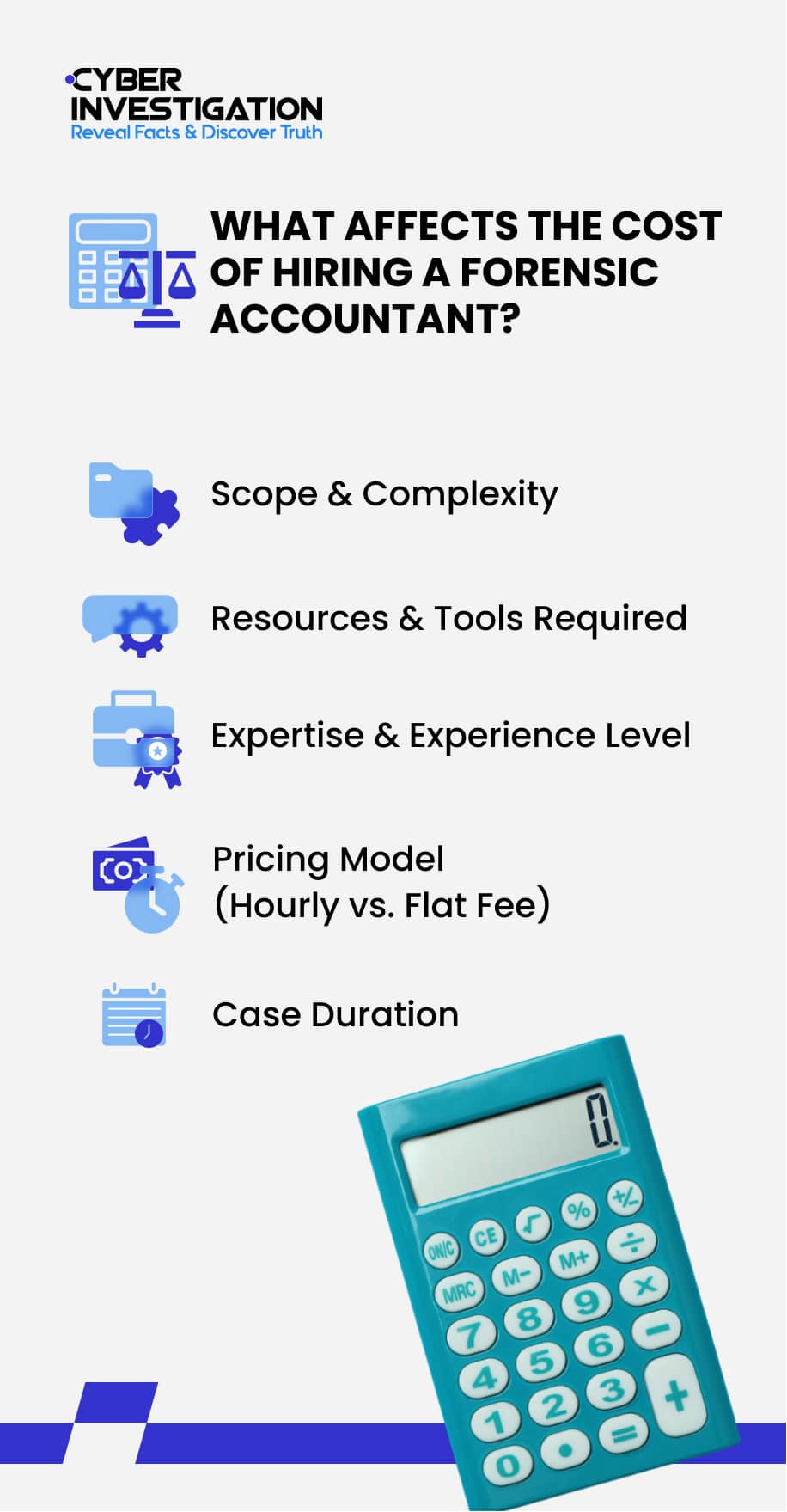
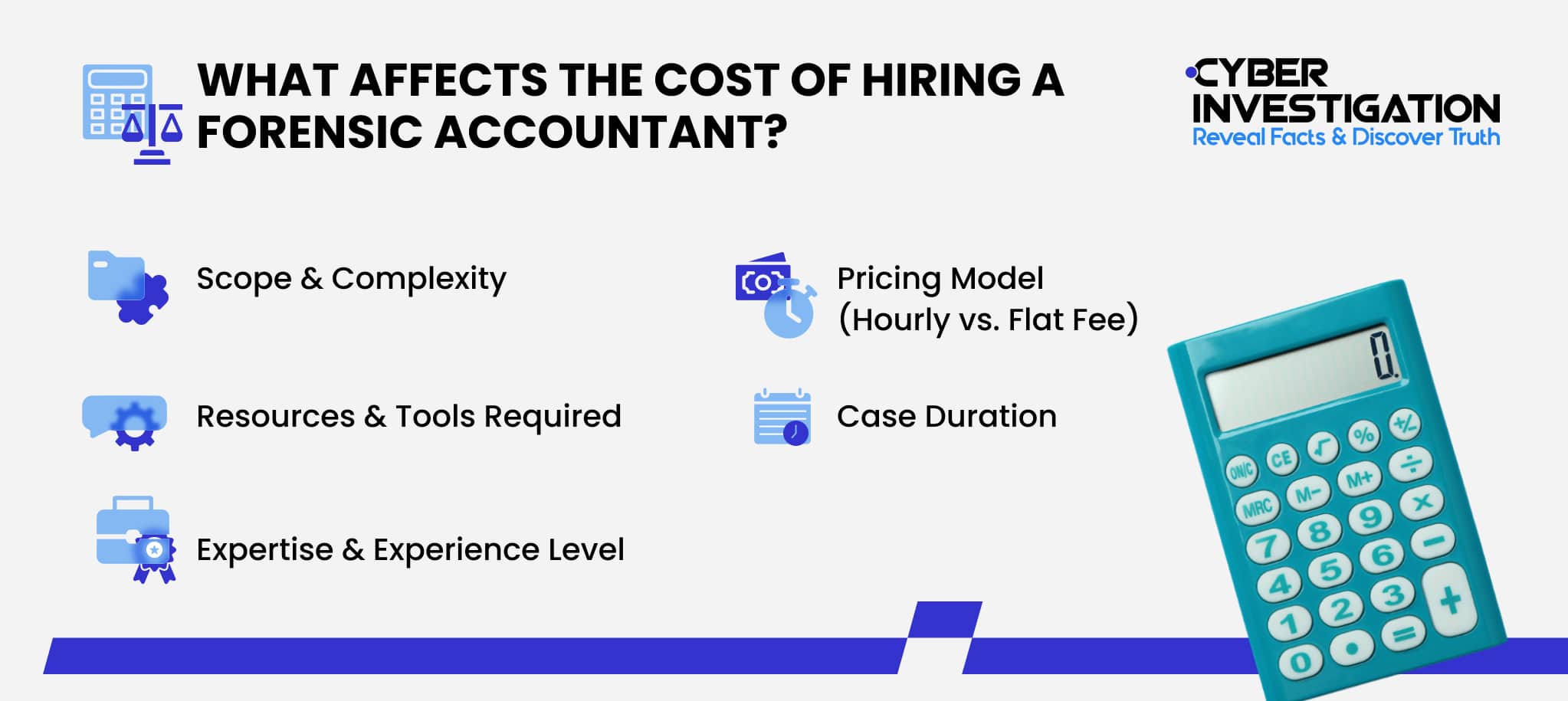
When Do You Need to Hire a Forensic Accountant?
Many people think that forensic accounting is only for big businesses or for solving crimes, but the truth is that this type of accounting can be used in many different situations. Forensic accounting is simply the application of accounting principles to the investigation of financial crimes.
This could include anything from fraud or embezzlement to money laundering or tax evasion. Forensic accounting experts may also be asked to testify in court as expert witnesses. In addition to fraud investigations, forensic accounting specialists may also be hired to assist in divorce proceedings, child custody battles, and other civil litigation cases.
Can a Forensic Accountant Find Hidden Bank Accounts?
Forensic accountants are trained to follow the money. They have a unique set of skills that allow them to dig deep and find financial discrepancies. This training comes in handy when uncovering hidden assets, such as bank accounts.
Bank accounts are often hidden in plain sight. The key is knowing where to look and what to look for. Here are some common places forensic accountants look for hidden bank accounts:
- Personal property records
- Business licenses and permits
- Tax returns
- Bank statements
- Credit card statements
- Investment accounts
- Retirement accounts
- Insurance policies
- Payroll records
- Legal documents
How Does a Forensic Accountant Find Hidden Assets?
A hidden asset is anything of value that is not readily apparent. Hidden assets can be physical, such as jewelry or art, or they can be financial, such as offshore bank accounts or undeclared income.
Here are some of the methods that forensic accountants use to track down hidden assets.
- Reviewing Financial Statements. One of the first places a forensic accountant will look for hidden assets is in a company’s financial statements. Financial statements are public records, so they can be easily accessed and reviewed. A forensic accountant will look for discrepancies between a company’s reported income and its actual cash flow. This can indicate that the company is hiding assets to avoid paying taxes on them.
- Conducting Interviews. Another way that a forensic accountant can find hidden assets is by conducting interviews with people who are familiar with the company’s finances. This could include employees, vendors, customers, or anyone else who has knowledge of the company’s financial dealings. During these interviews, the forensic accountant will be looking for any information that could help them track down hidden assets.
- Analyzing Public Records. Another source of information that a forensic accountant can use to find hidden assets is public records. This could include property records, business licenses, court records, and other government records. By analyzing these records, a forensic accountant may be able to piece together information that leads to the discovery of hidden assets.
Conclusion: What Does This All Mean?
Overall, hiring a certified forensic accountant can help simplify complex financial investigations and uncover hidden money quickly and efficiently — but at what cost? The answer depends on several factors such as the scope of services needed, the complexity of investigation, the time needed for completion, the level of expertise sought after, and whether you choose an hourly rate or a flat-fee structure for payment.
With this knowledge in hand, you can make an informed decision about which type would work best for your particular situation before taking any further action. And if you ever need forensic accounting assistance, you can trust the team of experts at Cyber Investigation Inc. You can contact us 24/7 to speak with one of our specialists for a free, confidential consultation.
